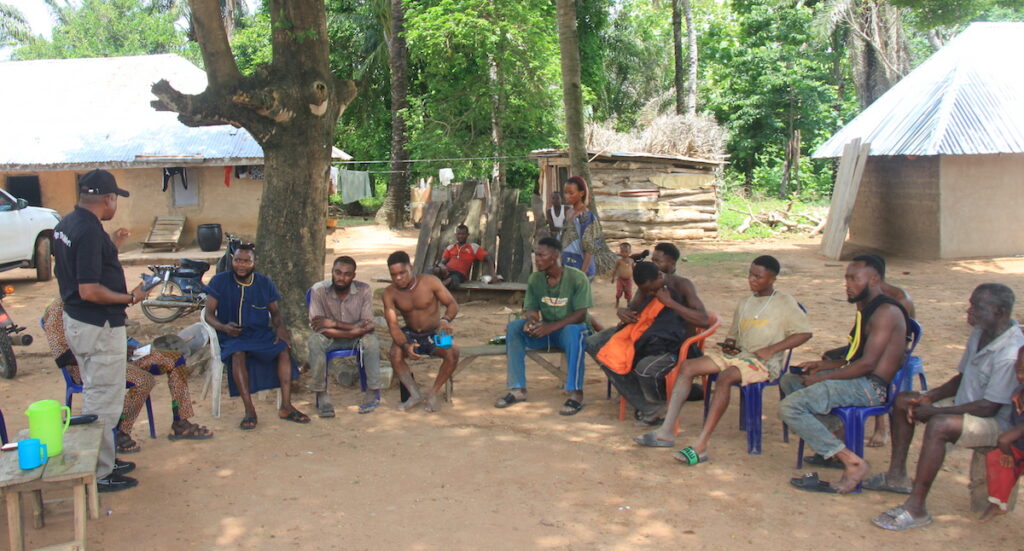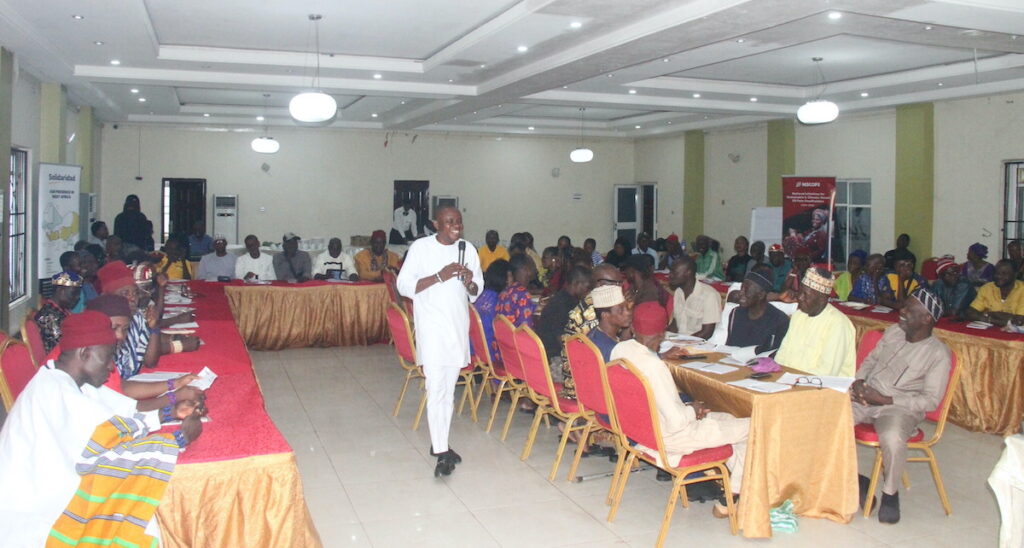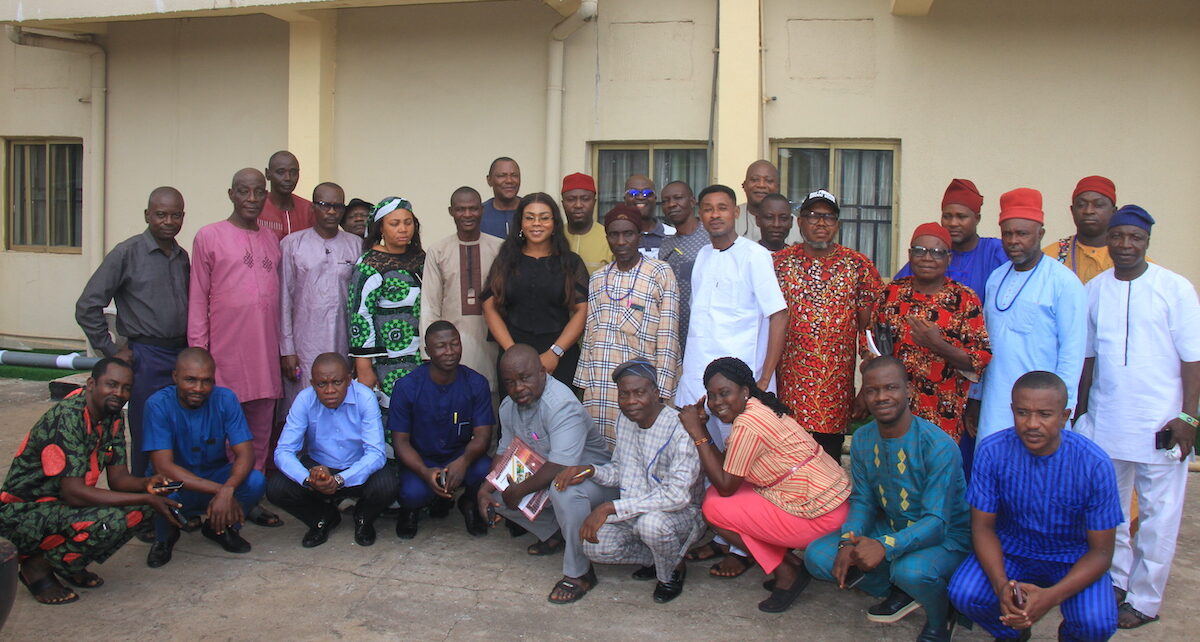Community-based forest management committee members gather to advocate for biodiversity and forest conservation.
Nigeria continues to face one of the highest rates of deforestation in the world. In 2024 alone, the country lost 253,000 hectares of natural forest, which is the equivalent of approximately 114 million metric tonnes of carbon emissions.
Solidaridad, through the National Initiatives for Sustainable and Climate-Smart Oil Palm Smallholders (NISCOPS) programme, has established 49 community-based forest management committees in communities in Akwa Ibom, Cross River, Enugu, and Kogi states to help address the deforestation challenge.
The goal is to reverse forest loss through the actions of communities willing to take charge of natural resource governance.

Each of the forest management committees is responsible for mapping high conservation value areas, identifying biodiversity hotspots, documenting traditional forest management practices, and raising awareness on the importance of forest protection.
Additionally, the committees will collaborate with traditional institutions and local authorities to enact or strengthen community-based forest laws.
As part of the initiative, committee members have received capacity-building support in sustainable forest management, biodiversity conservation, climate change adaptation, gender inclusion, and Payment for Ecosystem Services (PES). These efforts are designed to equip committee members with the tools and knowledge needed to safeguard their forests, while creating economic benefits from their stewardship.

The committees will map the forest area in their localities to assess its size and health. This data will form the basis for developing and implementing Community Forest Management Plans. These plans will prioritize practical strategies for conservation, sustainable resource management and the monitoring of deforestation-free oil palm agriculture.
“Through the continued support of Solidaridad, these communities are well-positioned to benefit directly from Payment for Ecosystem Services (PES) schemes, like receiving financial incentives for preserving biodiversity, enhancing carbon sequestration, and delivering other ecological services,” says Kene Onukwube, the programme manager at Solidaridad in Nigeria.

About NISCOPS
The NISCOPS programme, funded by the government of the United Kingdom and the Kingdom of the Netherlands, seeks to improve land use through sustainably managed oil palm production. The programme is designed to improve income for smallholders and develop inclusive markets for smallholders that follow sustainable agriculture guidelines. It engages stakeholders across the supply chain, including farmers, governments, the private sector, civil society, and research institutions, to support development that is climate-smart, inclusive and sustainable.


